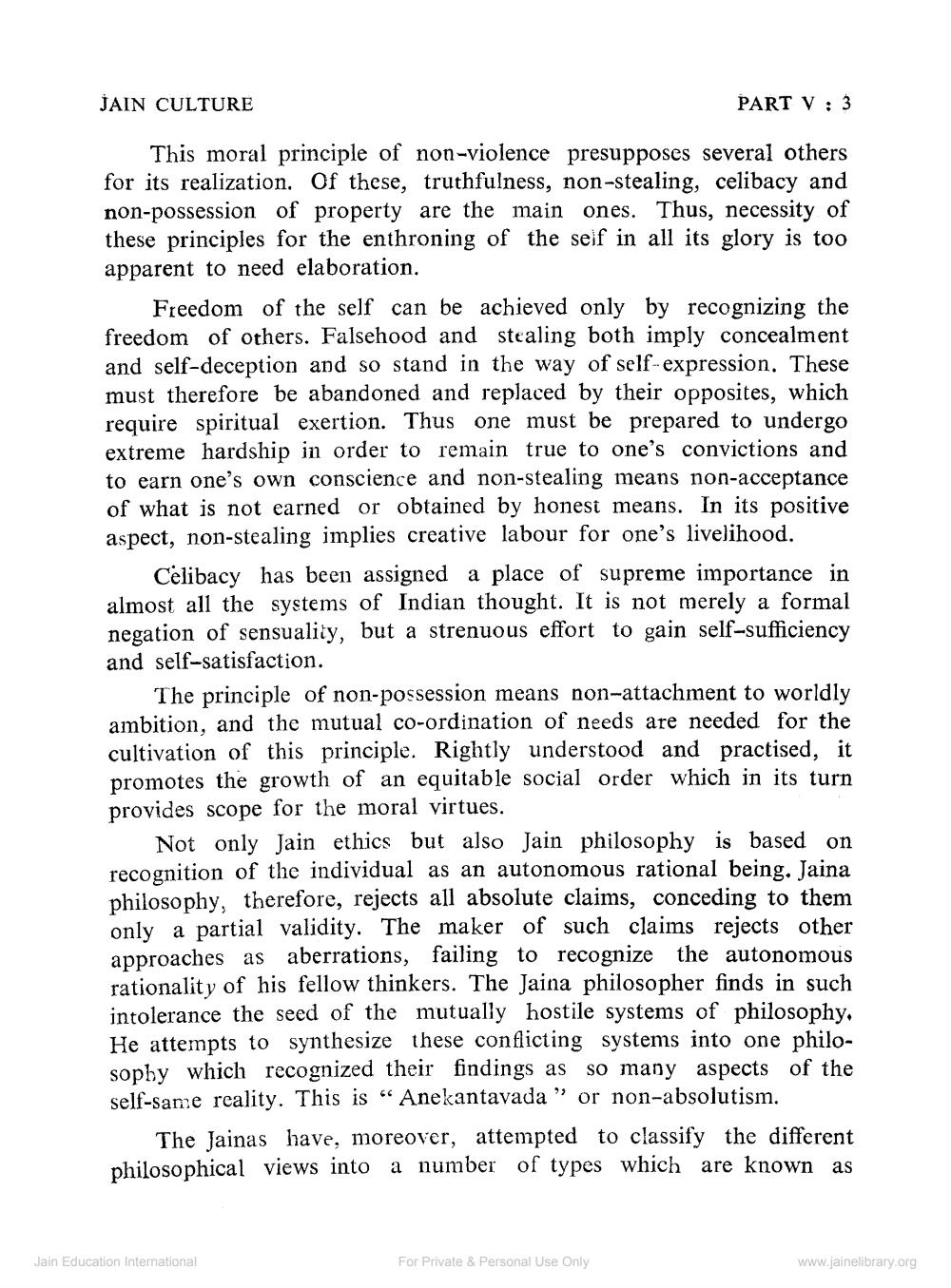________________
JAIN CULTURE
PART V : 3
This moral principle of non-violence presupposes several others for its realization. Of these, truthfulness, non-stealing, celibacy and non-possession of property are the main ones. Thus, necessity of these principles for the enthroning of the self in all its glory is too apparent to need elaboration.
Freedom of the self can be achieved only by recognizing the freedom of others. Falsehood and stealing both imply concealment and self-deception and so stand in the way of self-expression. These must therefore be abandoned and replaced by their opposites, which require spiritual exertion. Thus one must be prepared to undergo extreme hardship in order to remain true to one's convictions and to earn one's own conscience and non-stealing means non-acceptance of what is not earned or obtained by honest means. In its positive aspect, non-stealing implies creative labour for one's livelihood.
Celibacy has been assigned a place of supreme importance in almost all the systems of Indian thought. It is not merely a formal negation of sensuality, but a strenuous effort to gain self-sufficiency and self-satisfaction.
The principle of non-possession means non-attachment to worldly ambition, and the mutual co-ordination of needs are needed for the cultivation of this principle. Rightly understood and practised, it promotes the growth of an equitable social order which in its turn provides scope for the moral virtues.
Not only Jain ethics but also Jain philosophy is based on recognition of the individual as an autonomous rational being. Jaina philosophy, therefore, rejects all absolute claims, conceding to them only a partial validity. The maker of such claims rejects other approaches as aberrations, failing to recognize the autonomous rationality of his fellow thinkers. The Jaina philosopher finds in such intolerance the seed of the mutually hostile systems of philosophy, He attempts to synthesize these conflicting systems into one ph sopby which recognized their findings as so many aspects of the self-same reality. This is “Anekantavada" or non-absolutism.
The Jainas have, moreover, attempted to classify the different philosophical views into a number of types which are known as
Jain Education International
For Private & Personal Use Only
www.jainelibrary.org




